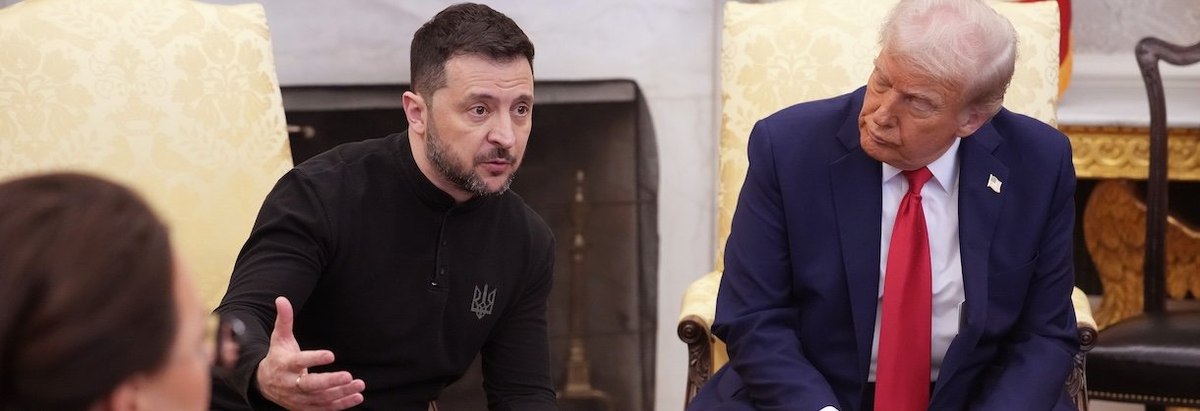Editor's note: This article was originally published in The Surveyor, YouGov America's weekly email newsletter. It has been revised for publication here. Subscribe to The Surveyor for regular updates on YouGov's polling.
The most recent Economist / YouGov Poll had a striking finding: Support for increasing military aid to Ukraine is at or near its highest levels since the Economist and YouGov began asking about this in September 2022.
This rise in American support for more Ukraine aid — and the fall in the share who want to decrease or stop aid — is not primarily driven by Democrats, who have been consistently supportive of arming Ukraine. Instead, what we're seeing is a big drop in opposition to aid among Republicans. In early March — right after Ukraine President Volodymyr Zelensky's contentious White House meeting with U.S. President Donald Trump and Vice President JD Vance — 59% of Republicans wanted to either decrease or stop military aid to Ukraine. That's now down to 35%.
Among Republicans, the share who want to stop all military aid to Ukraine has fallen to 17% from 33% in March, while the share who want to reduce but not eliminate aid has fallen to 18% from 26%. Over that same time, the share who want to maintain aid at the same levels has risen to 28% from 16%, and the share who want to increase it has doubled to 18% from 8%.
The Economist / YouGov Poll first began asking about military aid to Ukraine in September 2022. The 35% of Republicans who currently want to either decrease or stop military aid to Ukraine is the lowest since October 2022.1
A separate question, asking Americans whether they sympathize more with Ukraine, Russia, or neither side — or aren't sure — also shows a rebound in Republican views toward Ukraine. After the February 28 Oval Office clash, 37% of Republicans said they sympathized more with Ukraine, while 50% sympathized with neither side. Today 55% of Republicans sympathize with Ukraine, while 28% sympathize with neither. (Then and now, only 3% of Republicans say they lean toward Russia.)
The share of Republicans sympathizing more with Ukraine remains below the share who said so throughout 2022 and 2023, and below the share of Democrats who have ever said they sympathize more with Ukraine in any poll since March 2022.
See more in the writeup of this week's Economist / YouGov Poll.
Methodology: The poll was conducted among 1,551 U.S. adult citizens. Respondents were selected from YouGov’s opt-in panel to be representative of U.S. adult citizens. A random sample (stratified by gender, age, race, education, geographic region, and voter registration) was selected from the 2019 American Community Survey. The sample was weighted according to gender, age, race, education, 2024 presidential vote, 2020 election turnout and presidential vote, baseline party identification, and current voter registration status. 2024 presidential vote, at time of weighting, was estimated to be 48% Harris and 50% Trump. Demographic weighting targets come from the 2019 American Community Survey. Baseline party identification is the respondent’s most recent answer given around November 8, 2024, and is weighted to the estimated distribution at that time (31% Democratic, 32% Republican). The margin of error for the overall sample is approximately 3.5%.
Image: Getty
What do you really think about President Trump, American politics in general, and everything else? Share your reality, join the YouGov panel, and get paid to share your thoughts. Sign up here.












